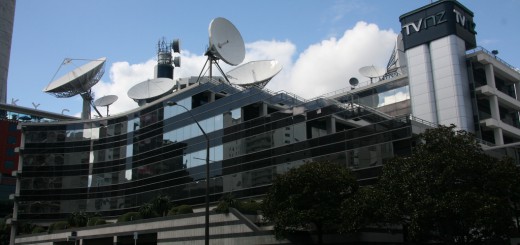Summer speeches 2008: why it’s not the economy, stupid
[text-blocks id=”act-party”]
First, a Dominion-Post/David Farrar-style evaluation of my “predictions” made a few weeks back on the highest trafficked post on this blog to date:
Duncan Garner reported for 3 News
Even Hilary Barry was back from her holiday
But apart from John Key being the man giving the speech, that’s about it. The speech was at Ellerslie, not Burnside, and the topic had nothing remotely to do with ACT. Quelle surprise! But Key’s speech on Tuesday morning nevertheless held some interesting talking points with regards to ACT. The media have universally reported the speech as being solely about youth crime and, more specifically, “boot camps”. This suits the TV folks well, for whom the news is a nightly summary of the day’s court news. It makes a good companion for the primetime schedule (on Wednesday, Real Crime on TV1, Street Legal on TVNZ6, Law and Order on TV3). What got omitted from the coverage of Key’s speech was the substantial discussion on New Zealand’s economic future at the beginning of his speech. Key’s poor speechwriters had even put in a specially crafted soundbite, but Duncan just wasn’t interested:
When Sir Ed climbed Mt Everest back in 1953, he wasn’t the only New Zealander on top of the world. We all were. We were among the five wealthiest countries on earth. Not any more. Fifty-five years on, we are no longer an Everest nation. We are among the foothill nations at the base of the OECD wealth mountain. Number 22 for income per person, and falling.
How does this affect ACT? It’s a portent that its economic policies just won’t get covered by the media, no matter how relevant or effective the Taxpayer Rights Bill, Regulatory Responsibility Bill or Service Level Agreements might be. If the leader of the country’s most popular party (going by opinion polls) can’t get his economic commentary covered, how can ACT expect to get its message, now dominated by economic concerns, communicated to voters?
The ACT position might be something like this: “well, the media have never given us a fair go, why should they now? We’ll use good old fashioned campaigning to get the message to voters directly, just like in Epsom in 2005”. But as the US Presidential Election primaries are currently showing, paid advertising is limited in its effect. Mitt Romney is worth some $US250 million, yet yesterday failed once again to win (this time in the Florida primary) against John McCain, who has done well out of free coverage in the news media; Rudy Giuliani saved up every penny of his war-chest to spend up large in Florida, yet has unceremoniously tanked. Moreover, in the introduction to my dissertation I highlighted how ACT’s substantial financial backing in its early days failed to propel it to a sizeable share of the vote. ACT will need some good free media coverage to get anywhere near its target on election day.
ACT might also argue that economic issues will become more dominant in the lead-up to election day. I think this is possible, and the “tax cut” theme of the last election is proof that economic concerns are important to voters. But 2005 also showed that ACT did not “own” the tax issue. Instead, it was National which moved tax to the forefront of voters’ minds. And it was National which picked up the credit, in the form of votes it took from parties such as ACT. But even the primacy of tax cuts to the 2005 election is questionable. Beneath the surface, it was the issue of race (which Brash had brought up in his 2004 Orewa speech) and the general theme of trust which were central in voters’ minds – social issues. The promise of tax cuts only reinforced National as a credible choice for many undecided voters.
Clearly, ACT needs a credible social issue to “own” at the election. It might just have found one. Hide’s promotion of the anti-smacking petition led by right-wing evangelical lobby group Family First on Radio Live on Monday and its inclusion in the ACTion member newsletter last week hint at the possible introduction of this as a key campaign plank. This could be a sage move for ACT: John Key’s National is compromised in any attempt to cash in on any anti-smacking fervour, as it signed up to the bipartisan agreement with Labour last autumn. ACT consistently opposed the bill, so is able to position itself as the only genuine, principled opposition to the bill.
But the fish-hook to this may be the involvement of Family First. If Don Brash were to give Hide some election advice, it might well be to avoid having anything to do with right-wing fringe Christian groups. Before deciding to ally itself with such a group, ACT should recall the proverb timeo Danaos et dona ferentes – “I fear Greeks, even when they bear gifts”.
